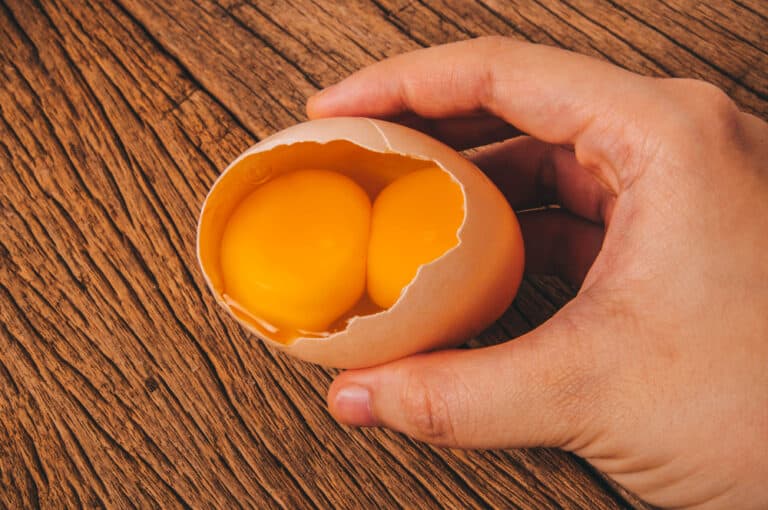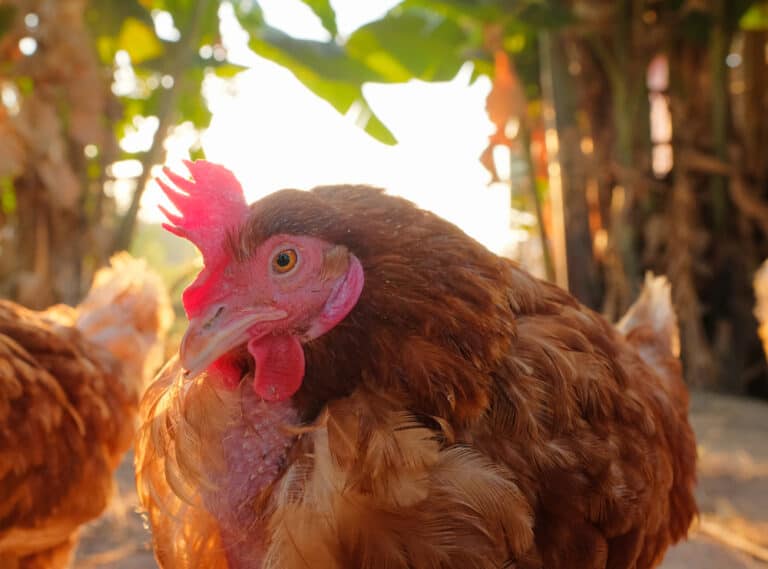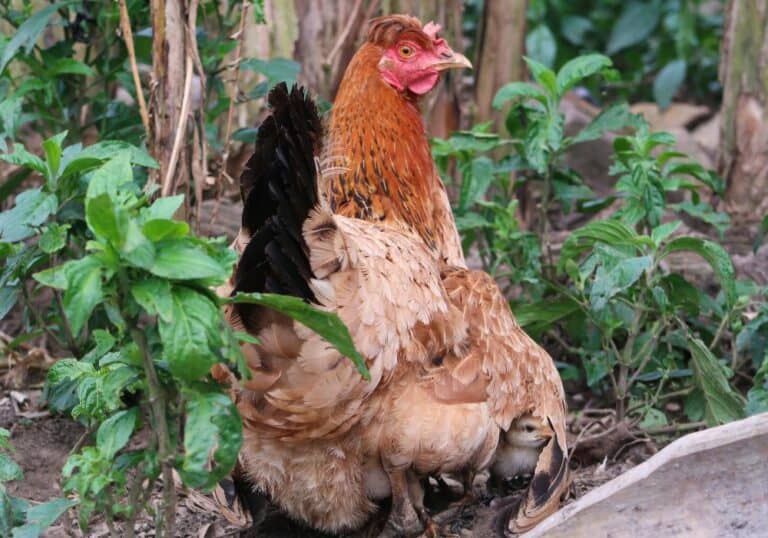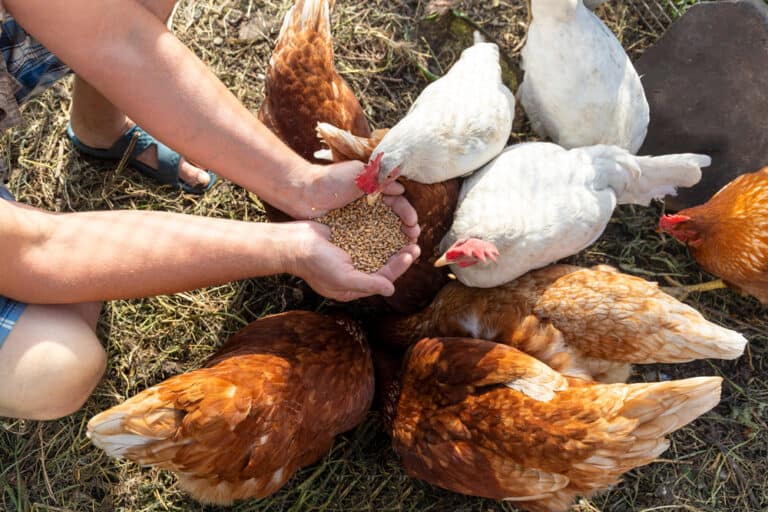Fowl pox is a common viral infection in chickens that can look awful but often isn’t life-threatening. If you’ve heard of fowl pox cases in your area or already have an outbreak, then you’ll understandably be worried.
We’re here to put your mind at ease by giving you all the facts you need. We’ll look at how to identify fowl pox, what causes it, and what to do if your chickens have it. Let’s get straight to it!
What is Fowl Pox
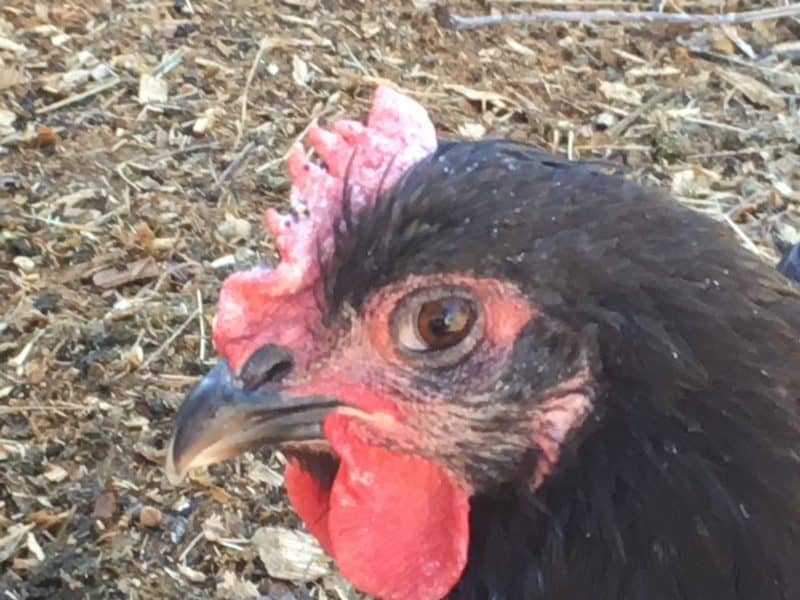
Fowl pox is a viral infection that can affect a range of birds including turkeys, ducks, pheasants, and some wild birds. Chickens can also easily get the virus, which can spread to your whole flock.
This virus takes two forms, which can either be dry pox or wet pox. Which type it is depends on where the symptoms develop in the chicken.
If they are on their unfeathered parts, it’s dry pox. However, if the symptoms are in their mouth or throat, it’s wet pox. Here we’ll look more closely at these two types.
Dry Pox
Dry pox can form on any of the unfeathered parts of a chicken and is much more noticeable than wet pox. Here the chicken will start to develop lesions that will look like a small yellow blister before growing and getting darker.
These lesions can often affect their combs and wattles and, at worst, can affect their vision. This can look terrible and painful, but thankfully it’s usually not serious. Along with these lesions, the chicken may lose its appetite.
Wet Pox
Wet pox is usually much more serious than dry pox, but thankfully, fatalities are low. Here mucous membranes can build up in their mouth, trachea, and larynx. Unfortunately, this can cause breathing difficulties in your chickens.
In the vast majority of cases, these difficulties can be overcome but in approximately 5% of chickens, it will be fatal. It can be hard to spot wet pox and the first sign of it can sometimes be your chicken refusing food and water.
The viral disease isn’t too difficult to contain, especially if you spot it early. It’s also important to note that a chicken can have wet and dry pox at the same time.
Causes of Fowl Pox
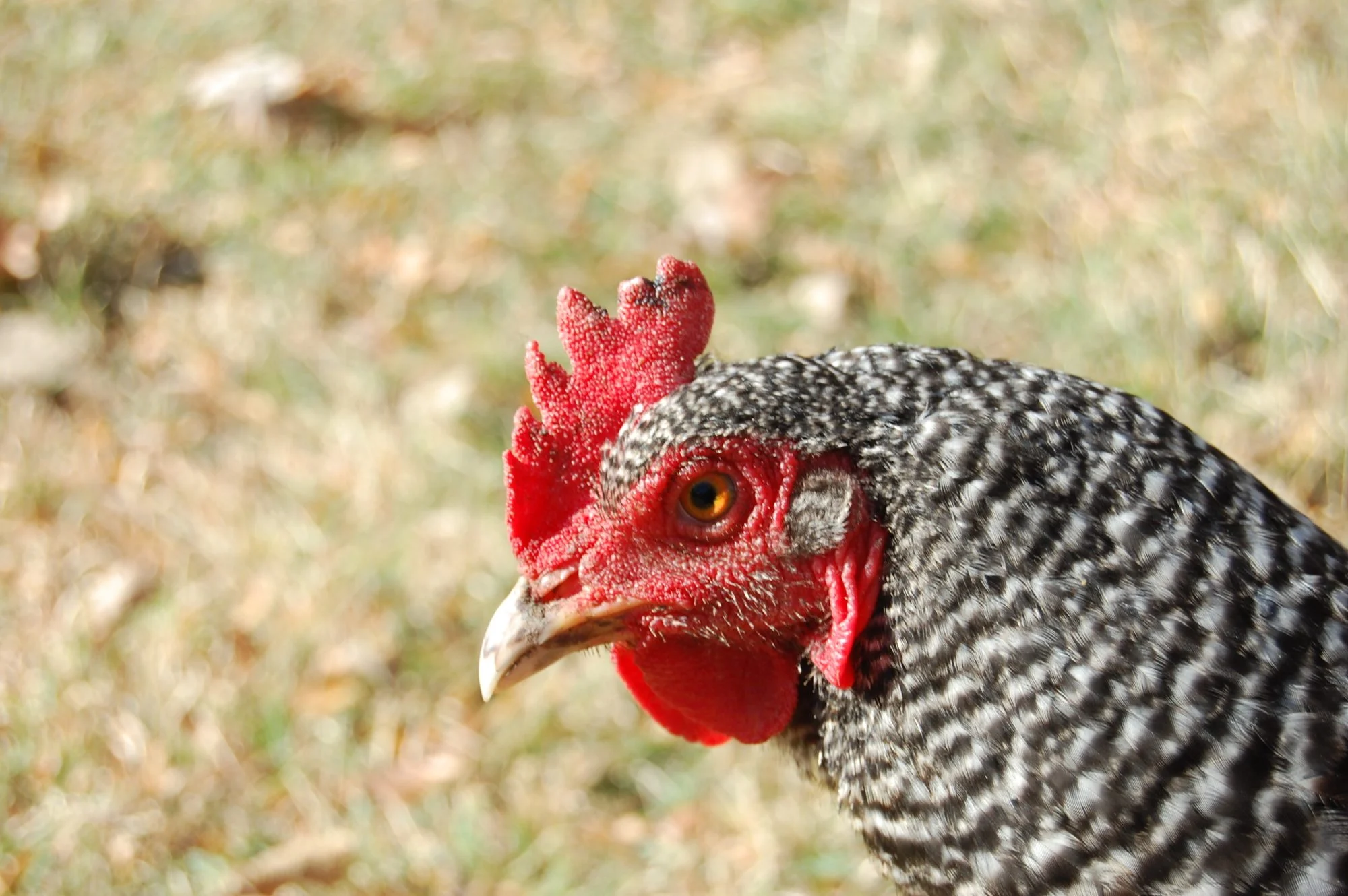
The reason your chickens will have caught fowl pox is almost certainly due to a bite from an infected mosquito. While other biting insects can carry the disease, the mosquito is by far the most frequent source of infection.
Not only that, but they can carry this virus from one chicken to the next. For example, a mosquito can bite a chicken that was already infected and then carry that virus over to another flock of chickens that aren’t infected.
Once a mosquito bites an infected chicken, it can usually carry the virus for around two months. This gives it plenty of time and opportunity to spread the virus.
If you have just one chicken that is infected, then that chicken can spread the virus to the rest of the flock. This isn’t easily done but is usually from the uninfected chicken coming into contact with the blisters or the mucous membranes of an infected chicken.
It can be difficult to know exactly how it spreads as, of course, there may be multiple mosquitos that have bitten multiple chickens. Birds of any age can catch fowl pox, so you’ll want to ensure your chicks are protected.
Treatment
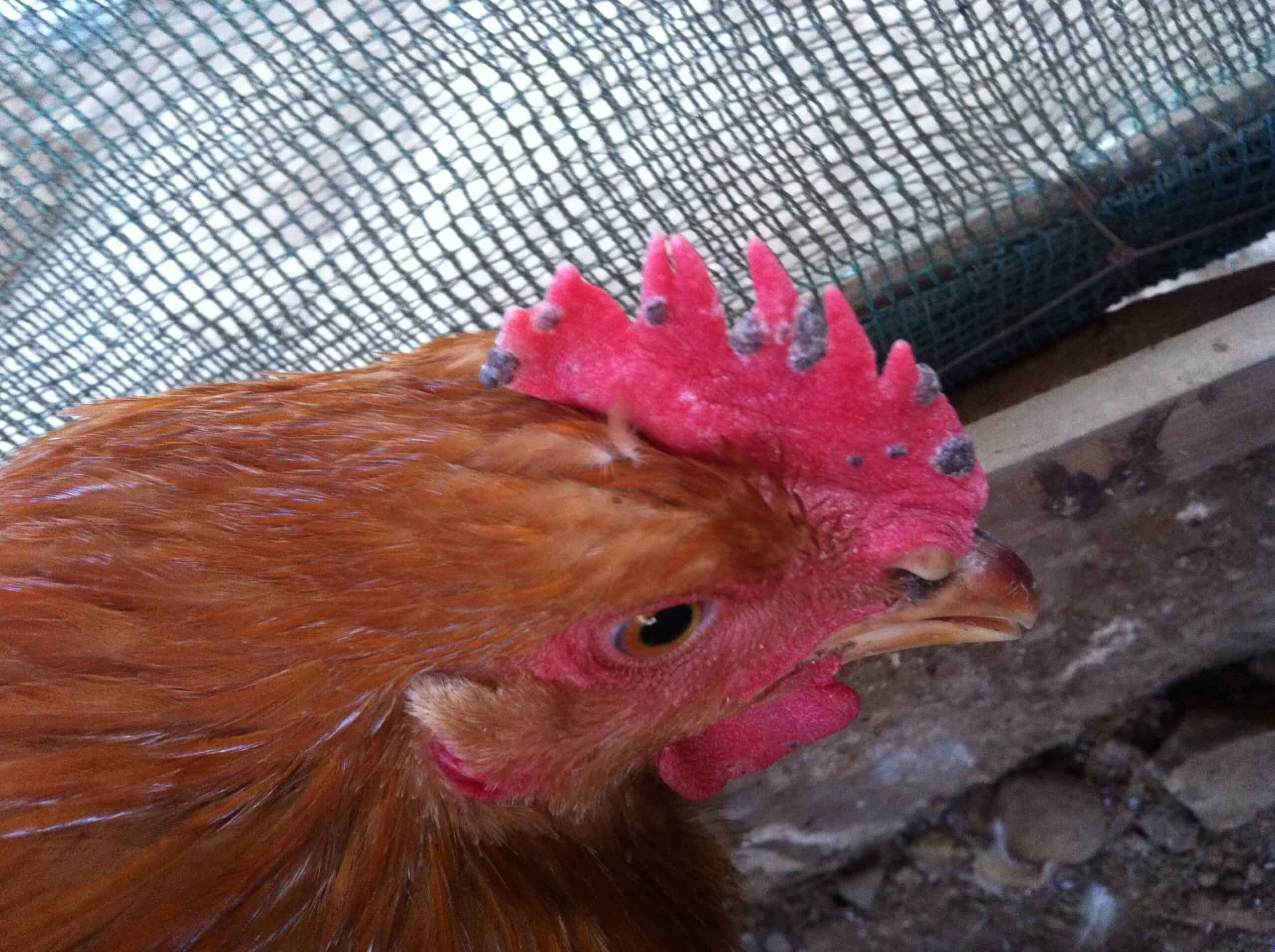
The bad news is that there is no cure for fowl pox and you have no choice but to hope your chickens can ride it out. The good news is that fowl pox has a low mortality rate so they should be okay. It’s estimated that between 1-5% of chickens die from the virus.
While there is no treatment for fowl pox directly, there are some treatments given for potential secondary effects. This is to protect your chickens from infections due to their wounds and lowered immune systems.
Firstly, vets may prescribe some antibiotics. While antibiotics don’t work on viral infections, they do on bacterial infections. When recovering from fowl pox, your chicken will be susceptible to bacterial infections so antibiotics can get ahead of the issue.
Another way to prevent bacterial infections is to treat any open blisters or lesions with an antiseptic. Iodine is commonly used for this reason, but other medications can be useful too, such as Vetericyn.
Recovery time for most chickens will be in the region of two to four weeks. However, it can take a few months for the worst of the lesions to clear. Even then, the chicken can be left with permanent damage.
Another bit of good news is that similar to chicken pox in humans, they are very unlikely to get the virus again if they’ve had it once. And even if they did manage to get it again, it wouldn’t be as severe the second time around.
Prevention
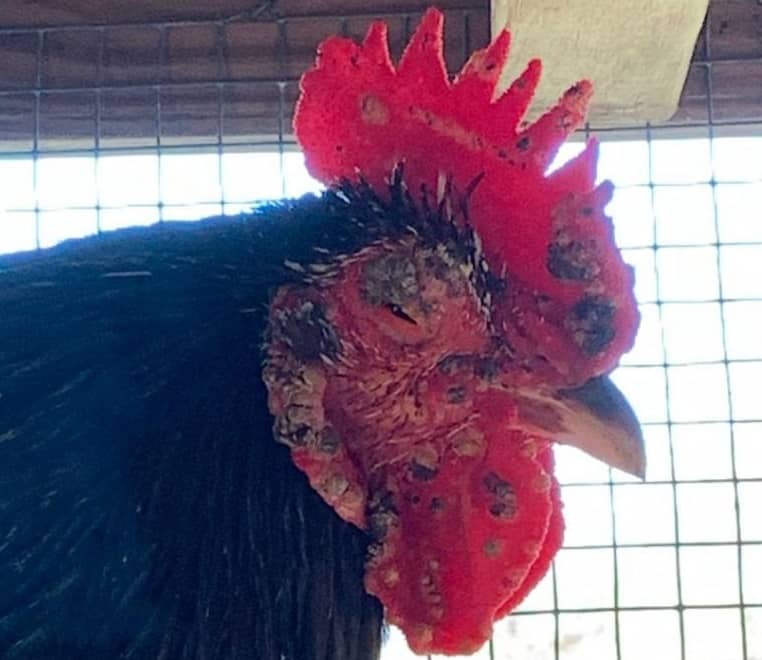
The best way to prevent fowl pox is by vaccination which is highly effective in preventing its spread. How and when your chickens are vaccinated can depend on how prevalent the virus is in your area.
Simply put, if there is a lot of fowl pox around then it’s best to get them vaccinated on day one. However, this early vaccination is not enough to give them long-term protection, but it will keep them safe when they are chicks.
The second vaccination can then take place anywhere from 8 to 16 weeks. This will give them excellent long-term protection and prevent them from ever suffering from fowl pox.
If you live in an area where the risk of fowl pox is low, then usually that first vaccination isn’t given. Instead, they will be given just one vaccination which will protect them for life.
While you should vaccinate your chickens, what happens if you already have a case of fowl pox? What should you do and how can you stop it spreading to your other chickens? Let’s guide you through it.
Stopping the Spread
One positive feature of fowl pox is that it doesn’t spread rapidly. If one chicken has it and you’ve spotted it early, there’s a decent chance that no other chicken has the virus.
The obvious thing to do here is quarantine. Keep any of your sick chickens away from those who are healthy. This can be hard to do for smaller backyard coops, but it can be the best way to stop the spread and contain the virus.
If a small number of your chickens have the virus, then it’s a good idea to get your healthy birds vaccinated as soon as possible. The vaccine can take a few weeks to have the full effect, but they’ll quickly develop some immunity.
As mentioned earlier, fatality is possible but unlikely. Once your chickens have fully recovered, they can then be integrated into the rest of the flock.
Stopping the Mosquitos
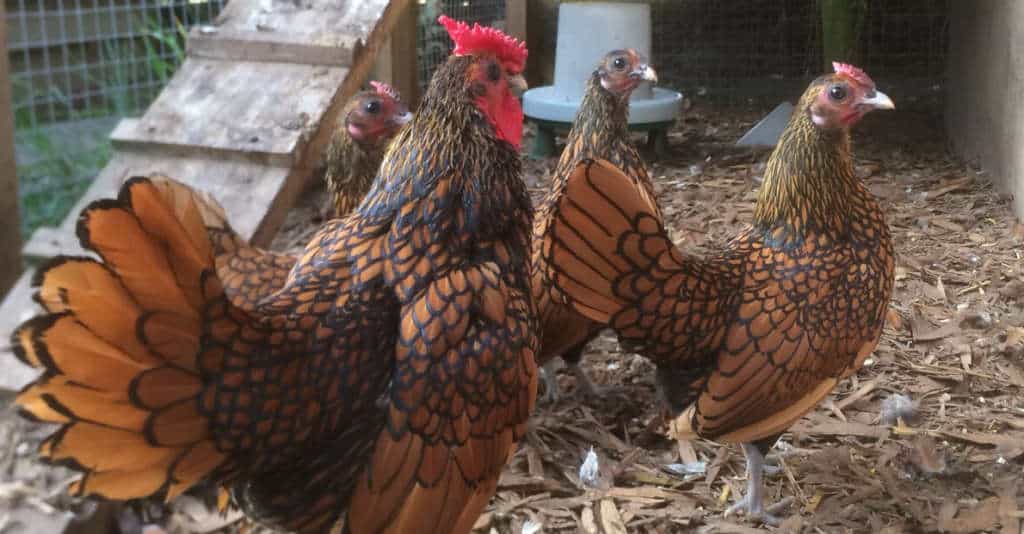
It seems that mosquitos only exist on this Earth to make us miserable! They can spread a wide range of viruses to both humans and other animals. Thankfully there are a few steps we can take to reduce the chance of them bothering our precious chickens.
- Standing Water – By far the best way to deter mosquitos is to not have standing water. This is how they breed, and it not only allows them to lay eggs, but it also attracts other mosquitos to the area.
Look around your yard and see where areas of standing water could be. This can be as simple as an upturned lid, a bird bath, or a dog bowl. It’s worth decluttering your area to deprive them of warm and moist places where they can thrive.
If you have a pond, make sure you have something to agitate the water (such as a fountain) and fish to eat mosquito larvae. If you have a pool, then just make sure it’s chlorinated.
- Netting – This can be hard to do, especially if you have a large coop and run, but mosquito nets can do a good job of protecting your chicken Mosquitoes are most active in the summer months and during sunrise and sunset.
While it’s hard to completely cover your chickens while still allowing for access, netting can help to reduce the chance of mosquito bites.
- Clean Up – Mosquitos not only need moist places to breed but they also need shade from the sun, which is why they are rarely seen in the middle of the day. You want to make your backyard as inhospitable as possible.
This means trimming your hedges, mowing your lawn, and clearing out your gutters. This will all make your backyard less attractive for these nasty insects.
- Use Natural Smells – While it wouldn’t be wise to spray mosquito repellent directly onto your chickens, there are ways to deter mosquitos with the power of smell.
The best way to do that is by using plants they avoid, with citronella being the best example. Keep a few of these plants just outside the coop and it should work very well.
- Mosquito Traps – Do bug zappers work? The jury is still out. While they kill mosquitos, they also attract mosquitos as well, so the overall population may not decrease. And while they kill mosquitos, they can attract other bugs and insects which see mosquitos as prey.
Conclusion
Fowl pox is a horrible viral infection. If your chickens have it then not only will they be stressed, but you’ll be feeling terrible too by seeing them suffer. Thankfully it should only last for a few weeks and mortality rates are very low.
If you have healthy chickens but are worried about fowl pox, then get your chickens vaccinated. If you already have an outbreak, then quarantine your sick chickens and consider antibiotics or antiseptics for secondary infections.

